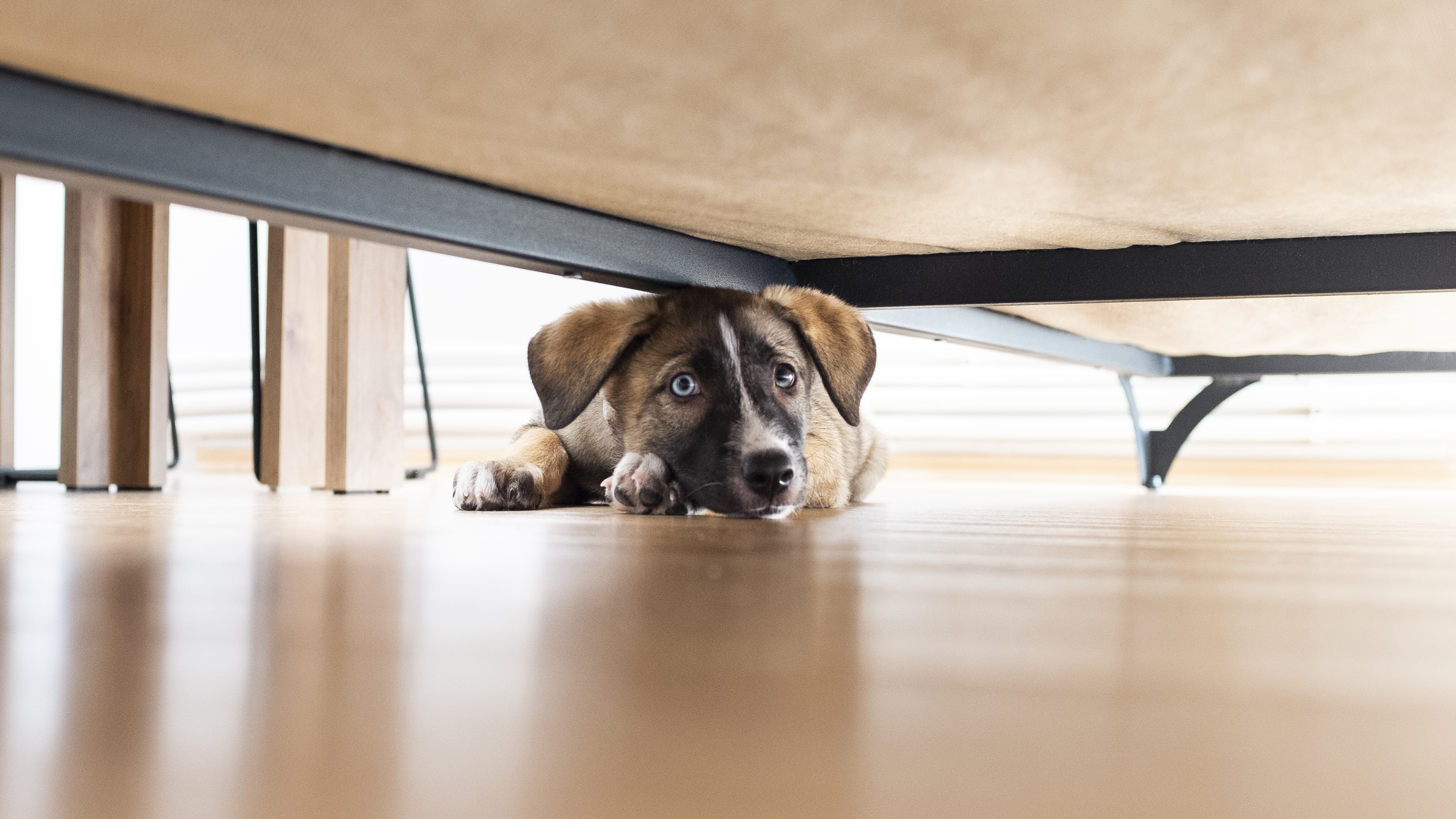
If you're anything like most pet parents who have a nervous or fearful canine companion, you've likely read up on all the tips and tricks for how to calm a reactive dog.
Reactivity can be incredibly challenging to deal with, particularly when you're out and about and your dog has a strong reaction to certain stimuli in the environment.
Whether it's barking, lunging, or growling, reactive dogs become so preoccupied with whatever is triggering them that they can be difficult to control.
However, according to expert trainer and behaviorist Nikki Mather, training a reactive dog to feel calmer and more confident is entirely possible and it all starts with training them away from other pups to begin with.
Before your dog is ready to be trained around other dogs, they first need to learn a set of skills that will set them up for success.
Keen to find out what they are? Read on as Mather reveals all!
1. Engagement skills: "You want to show your dog how great it is to check in with you," explains Mather. "For reactive pups, this focus training can then be used when we begin the desensitization process, with an engage/disengage game."
2. A sniffing game: "Sniffing is a great way for dogs to calm down and reduce stress levels, which is vital for reactive pups," Mather says. "It’s really helpful if you can get your dog sniffing on cue with a ‘go find’ game, it can also be used as a really great distraction tool when you get caught out and are not in an ideal training situation. Distraction is better than a reaction!"
3. Emergency turn: "This skill is so helpful to get yourselves out of tricky situations," explains Mather. "If you teach your dog how fun it is to move away with you, you can utilize this skill if you bump into triggers whilst out on walks, rather then putting tension in your dogs lead to pull them away."
As with training any new skill, Mather recommends you teach your dog out of context first (so away from their trigger) and in a quiet environment, so they are more likely to be successful.
And if you'd like some extra support with training your reactive dog, we recommend you check out our guide to how to spot dog trainer red flags before reaching out to a qualified professional.







